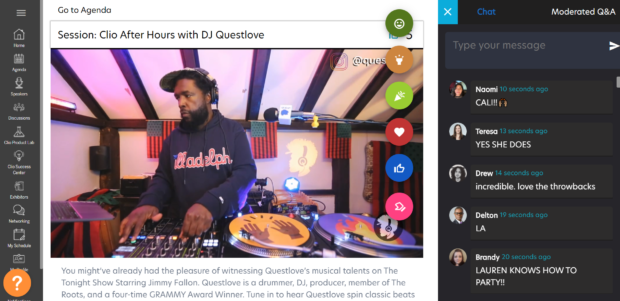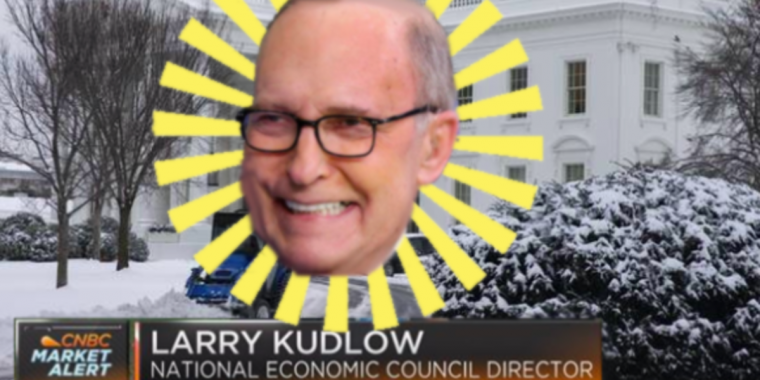Of last week’s Clio Cloud Conference, here’s the TL;DR: It didn’t suck. In fact, quite the opposite.
This, the eighth annual conference presented by the law practice management company Clio, was to have been a grand gathering in sunny San Diego. Last year’s event there drew 2,000 legal professionals, and Clio targeted even higher attendance for this year.
We all know what happened next. But as Clio came to grips with the need to cancel its live conference, it did not automatically switch gears to going virtual.
“Every virtual conference I’ve attended has sucked,” cofounder and CEO Jack Newton told his staff. “If we can’t make virtual ClioCon not suck, we won’t do it.”
Well, it didn’t suck. In my opinion, it was the best virtual conference the legal industry has seen so far. And, based on social media buzz and conversations I’ve had with others who attended, that seems to be the consensus.
Sure, there were technical glitches. Sound — or lack thereof — was a recurring issue, starting with the first session on the first day. Clio’s staff was always quick to address these issues when they arose and to keep attendees on notice of their efforts. My personal nit was a schedule page on the conference platform that offered to remember my time zone, then repeatedly reneged on that offer.
Enabling Connections
But these issues were minor in the scheme of things. They were glitches in a platform that is probably the best virtual conference platform I’ve seen so far. I wrote a preview post before the conference in which I praised the platform — developed by a company called Social27 — for doing something I have not seen in other virtual platform, which is put the attendees on almost equal footing with the speakers.

Clio CEO Jack Newton delivers the opening keynote.
Each attendee got their own “spotlight” page where they could post a brief video greeting and through which they could connect with and message others. Attendees could also create their own scheduled or spontaneous group discussion rooms, to which they could invite specific individuals or open them to others with shared interests.
“For me, a conference is about more than just consuming content,” Newton had told me then. “It’s about enabling the connections and the interpersonal exchanges that happen at the in-person conference to happen in a virtual environment. That’s our goal.”
Those connections were palpable last week, despite the virtual environment. They were most evidence in the conference chat, which was a nonstop scroll of introductions and comments and discussion and even at times of contention. The chat thrived with energy and enthusiasm that felt much like the energy and enthusiasm of past years’ live conferences.
Compelling Keynotes
Clio’s conference has come to have a reputation for scoring compelling keynote speakers, and this year’s lineup did not disappoint. Civil rights lawyer Ben Crump, attorney for the families of George Floyd, Breonna Taylor, Ahmaud Arbery, and others, and speaking on what would have been Floyd’s 47th birthday, delivered a moving and powerful call to action.

Ben Crump and Shaka Senghor discuss racial injustice.
Crump’s keynote was followed by what was supposed to be a Q&A session moderated by Shaka Senghor — who was one of last year’s keynotes and whose own story of empowerment and redemption is itself moving and powerful — but which felt more like an intimate conversation about racism, racial injustice, and their costs and consequences.
Another keynote speaker, Seth Godin, one of the world’s leading experts on marketing and bestselling author of 19 books, was inspiring in an entirely different way. Godin is perhaps the most tweetable speaker I’ve ever seen, every sentence a perfectly formed thought, all the while delivering a strong message of marketing through authenticity.
And if you thought Godin would know nothing of legal marketing, think again. His wife, Helene Godin, spent much of her career as a lawyer, including as general counsel for Audible when it was sold to Amazon, before she left law to start a bakery.
The third keynote speaker was Angela Duckworth, New York Times best-selling author of Grit: The Power of Passion and Perseverance. Unfortunately for me, other work caused me to miss most of Duckworth.
Parties and Programming

DJ Questlove closes out the conference on Friday.
Clio’s live conference is also known for its after-hours events, and while the virtual version could not replicate a beachside bash in San Diego, it did offer four nights of virtual entertainment that included a Friday virtual dance DJ’d by Questlove, whose band The Roots is the in-house band for The Tonight Show Starring Jimmy Fallon.
Other nights featured an intimate acoustic set by Ben Harper broadcast from the Folk Music Center that his family has owned since 1958, cooking lessons from award-winning chef Stephanie Izard, executive chef of five popular Chicago restaurants, and a performance by singer-songwriter Nathaniel Rateliff.
Of course, one comes to a conference for the programs, and this conference offered an array of them spread over the course of four days. They covered thought-provoking topics such as the future of courts online, the future of the Main Street law practice, improving diversity and inclusion in legal, and adapting to the new normal.
In past years of this conference, I have noted that, although produced by Clio, it is not just a customer conference. Last year, roughly a third of attendees were not Clio customers, and there was plenty of programming on generic issues of law practice and technology.
This year’s agenda felt more heavily skewed to Clio customers. By my count, the conference had 85 programs in total. If you exclude entertainment and wellness programs, there were 73 substantive programs. Of those, 50 were specifically focused on training and tips for using Clio products. So, roughly two-thirds of programs focused on Clio. I cannot say how this compared to past years’ agendas.
What Made It ‘Not Suck’
By numbers alone, the conference was a success. It drew 4,500 attendees, spanning every U.S. state and territory and more than 40 other countries. It was the largest virtual legal conference to date.
But beyond the keynotes, beyond the entertainment, beyond the programs, beyond the attendance, there was something else that made this conference “not suck.”
For every year of the live Clio conference, I’ve struggled to put into words the energy that makes it feel different than other conferences. Last year, I settled on the word “cult” to describe it — not in the pejorative sense of blind adherence but in its suggestion of devotion to an idea or movement.
“It is a cult in the most positive sense — a devotion to the idea of being better in their practices and for their clients — a devotion to innovation,” I wrote.
This year, I saw a tweet from an attendee, Seattle family lawyer Elise Buie, that struck me as capturing the essence of what made the virtual version work:
That combination of the practical with a profound and provocative human side says it all. It was a conference that made you think not only about how to improve your practice, but also about why to improve your practice – why to strive to build a better world for your clients, your colleagues and your communities.
Clio’s CEO Newton took this even further. “Clio itself is becoming a movement,” he said in his closing remarks, reiterating the motto the company adopted in 2017: “Let’s transform the practice of law, for good.”
The motto’s double meanings of permanent change and meaningful change were the themes that prevailed though much of last week’s conference. Regardless of whether you attended the conference, they are themes that should strongly resonate for all of us at this moment in time.
 Robert Ambrogi is a Massachusetts lawyer and journalist who has been covering legal technology and the web for more than 20 years, primarily through his blog LawSites.com. Former editor-in-chief of several legal newspapers, he is a fellow of the College of Law Practice Management and an inaugural Fastcase 50 honoree. He can be reached by email at ambrogi@gmail.com, and you can follow him on Twitter (@BobAmbrogi).
Robert Ambrogi is a Massachusetts lawyer and journalist who has been covering legal technology and the web for more than 20 years, primarily through his blog LawSites.com. Former editor-in-chief of several legal newspapers, he is a fellow of the College of Law Practice Management and an inaugural Fastcase 50 honoree. He can be reached by email at ambrogi@gmail.com, and you can follow him on Twitter (@BobAmbrogi).
 Kathryn Rubino is a Senior Editor at Above the Law, and host of The Jabot podcast. AtL tipsters are the best, so please connect with her. Feel free to email her with any tips, questions, or comments and follow her on Twitter (@Kathryn1).
Kathryn Rubino is a Senior Editor at Above the Law, and host of The Jabot podcast. AtL tipsters are the best, so please connect with her. Feel free to email her with any tips, questions, or comments and follow her on Twitter (@Kathryn1).


 Tom Kulik is an Intellectual Property & Information Technology Partner at the Dallas-based law firm of
Tom Kulik is an Intellectual Property & Information Technology Partner at the Dallas-based law firm of 



 Robert Ambrogi
Robert Ambrogi












 Jordan Rothman is a partner of
Jordan Rothman is a partner of